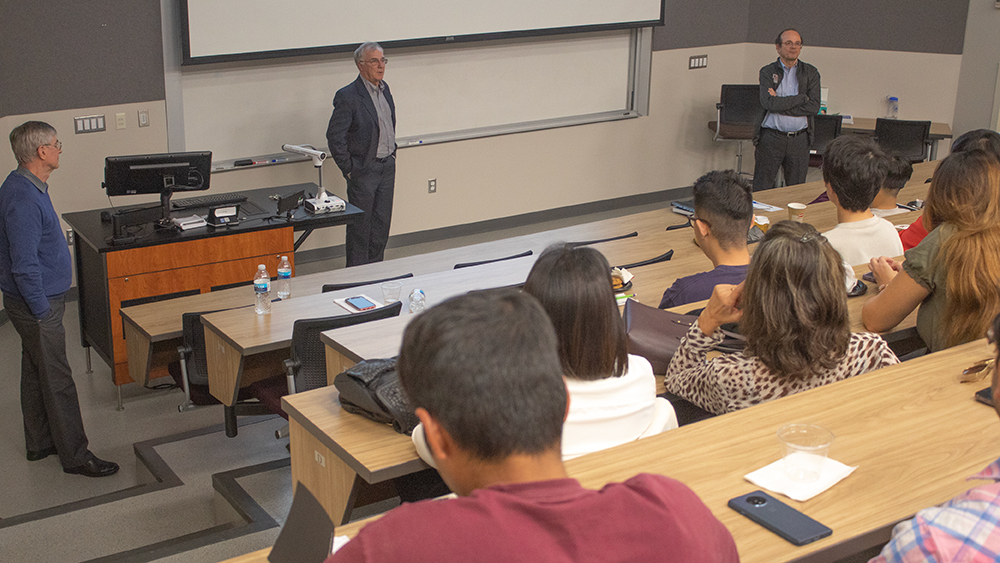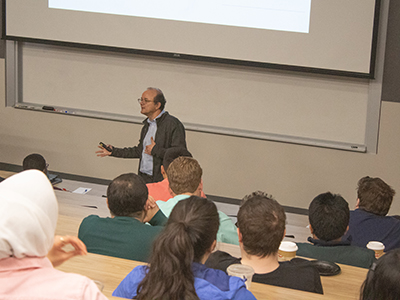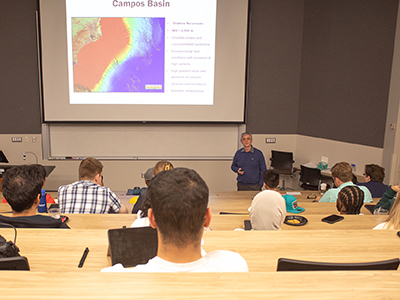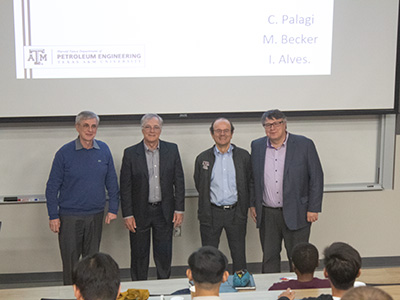
Dr. Iskander Diyashev, the speaker coordinator for the J.L. "Corky" Frank '58 Graduate Seminar Series for graduate students, brought a special guest to the Harold Vance Department of Petroleum Engineering at Texas A&M University on Feb. 14.
Diyashev, a professor of engineering practice, said the seminar series topic that day was the pioneering deepwater offshore oil development done at the Roncador oil field in the Campos Basin, Brazil, starting in the late 1990s.
The special guest was Dr. Cesar Palagi, who worked for the Brazilian oil company Petrobras managing multidisciplinary teams of technical, commercial and administrative professionals and estimating oil and gas production profiles and reserves. Palagi oversaw and coordinated the multi-billion-dollar annual investments in Roncador and is widely considered a critical figure in deepwater offshore development.
“Dr. Palagi led the organization that worked technical miracles every day while developing deep water fields,” said Diyashev. “His leadership and his teams’ work changed the trajectory of development of the entire nation of Brazil, making the country self-sufficient and even an energy exporter.”

The scheduled speakers for the seminar were Texas A&M faculty members Dr. Ibere Alves of the petroleum engineering department and Dr. Mauro Becker of the Department of Geology and Geophysics. Many years ago, both men worked for Petrobras and took part in the Campos Basin development.
Alves, a professor of engineering practice, explained the difficulties of offshore development and production in such extreme water depths. He also discussed the evolution of the complex equipment and methods used to recover the oil and gas at the site.

Becker, a professor of practice, explained how the Roncador field evolved geologically. He then walked the students through the modeling done on the basin and on the reservoir and fluids’ characteristics.
After the seminar, Palagi, Alves and Becker addressed the students’ questions and comments.

"Having these experts on hand to explain this historic evolution of deepwater drilling and development is a true learning opportunity for our students, but having Dr. Palagi here to answer questions is a real bonus, as he is a legend," said Diyashev.
The J.L. "Corky" Frank '58 Graduate Seminar Series was developed years ago to invite local, domestic and international expert speakers to Texas A&M to discuss past, current and future influences on the oil and gas industry. Weekly topics range from science and engineering processes to developments and trends.
The seminars are required during the first two semesters for incoming full-time graduate students in the department. However, the talks are open to any graduate students and faculty members who wish to attend.